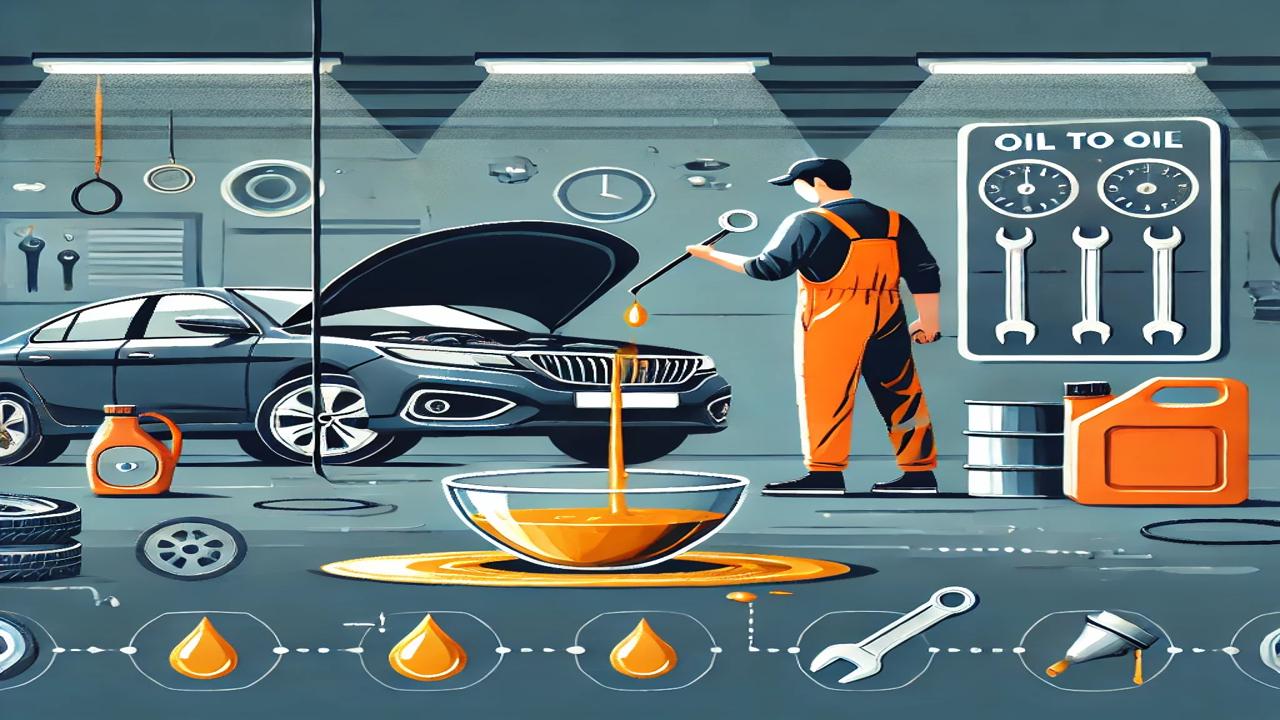What to Do in Case of Car Oil Leak?

Oil leaks in vehicles can disrupt the proper functioning of the engine and cause serious damage. It is crucial to take the correct steps when encountering such an issue. Let's go over what should be done, how to prevent it, and which areas should be checked step by step.
-
Check the Vehicle’s Condition and Find a Safe Spot Oil leakage typically occurs in the engine compartment but can spread underneath the vehicle. First, pull your vehicle to a safe location. Turn off the engine and engage the handbrake if possible. If the car is moving, be cautious when stopping and park immediately.
-
Check the Engine Oil Level Oil leakage may cause the engine oil to decrease. Therefore, it’s important to check the oil level. Most vehicles have a dipstick for checking the oil. If the oil level is low, add the correct type and amount of oil. However, this might just be a temporary solution. If the oil is low, you need to identify the source of the leak.
-
Identify the Source of the Oil Leak Look under the car to locate the source of the leak. Oil can leak from the following areas:
- Oil Filter: If the oil filter is not properly installed or worn out over time, it can cause an oil leak.
- Oil Plug: Check if the oil drain plug is tight. A loose plug can cause leakage.
- Seals and Gaskets: Over time, engine seals can wear, causing oil leaks, particularly the head gasket.
- Oil Pump: Loose or damaged connections in the oil pump may result in a leak.
- Engine Oil Lines: Some vehicles have oil lines that can get clogged or leak over time.
If you notice any leaks in these areas, you may need to consult a mechanic.
-
Clean the Car’s Undercarriage and Monitor the Leak Clean the undercarriage of the vehicle to check the oil leak. After cleaning, run the vehicle for a few minutes and check underneath again. If oil continues to drip, you can more clearly identify the source of the leak.
-
Temporary Solutions and Seek Help Once you’ve identified the source of the oil leak, you can perform a temporary fix, such as tightening a loose bolt or filter. However, if the leak is large, immediately take your vehicle to a service center.
-
Preventive Measures to Avoid Oil Leaks To prevent and avoid oil leaks, you can take the following actions:
- Regular Oil Changes: Regular oil changes help maintain the health of the oil system and prevent leaks.
- Check Oil Filter and Plug: Always inspect the oil filter and plug during oil changes. Loose or damaged filters can cause leaks.
- Monitor Engine Seals: Seals and other sealing points in the engine may wear over time. Regular maintenance can help spot such problems early.
- Inspect Oil Lines: Oil lines can wear out as well. If you notice cracks or damage in the lines, they should be replaced immediately.
- Seek Professional Help If the oil leak is significant or difficult to locate, it is important to get professional help. An automotive technician can identify the source of the leak more accurately and carry out repairs to fix the problem permanently.
Conclusion
Oil leaks in vehicles, if not addressed on time, can lead to severe engine damage. Identifying the source of the leak, taking the proper precautions, and performing regular maintenance will help prevent breakdowns. If you're unable to resolve the issue, do not hesitate to consult an expert. Remember, early detection and prevention are the key steps in protecting your vehicle's health.










